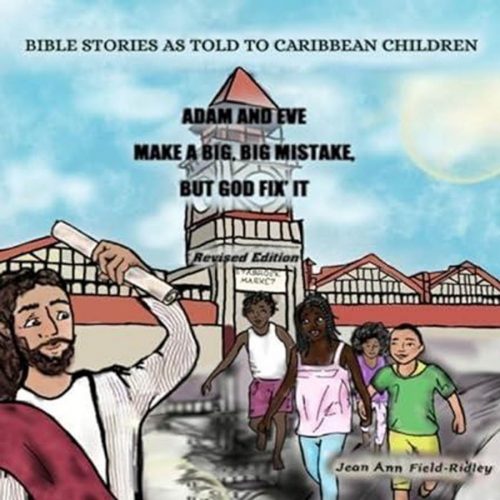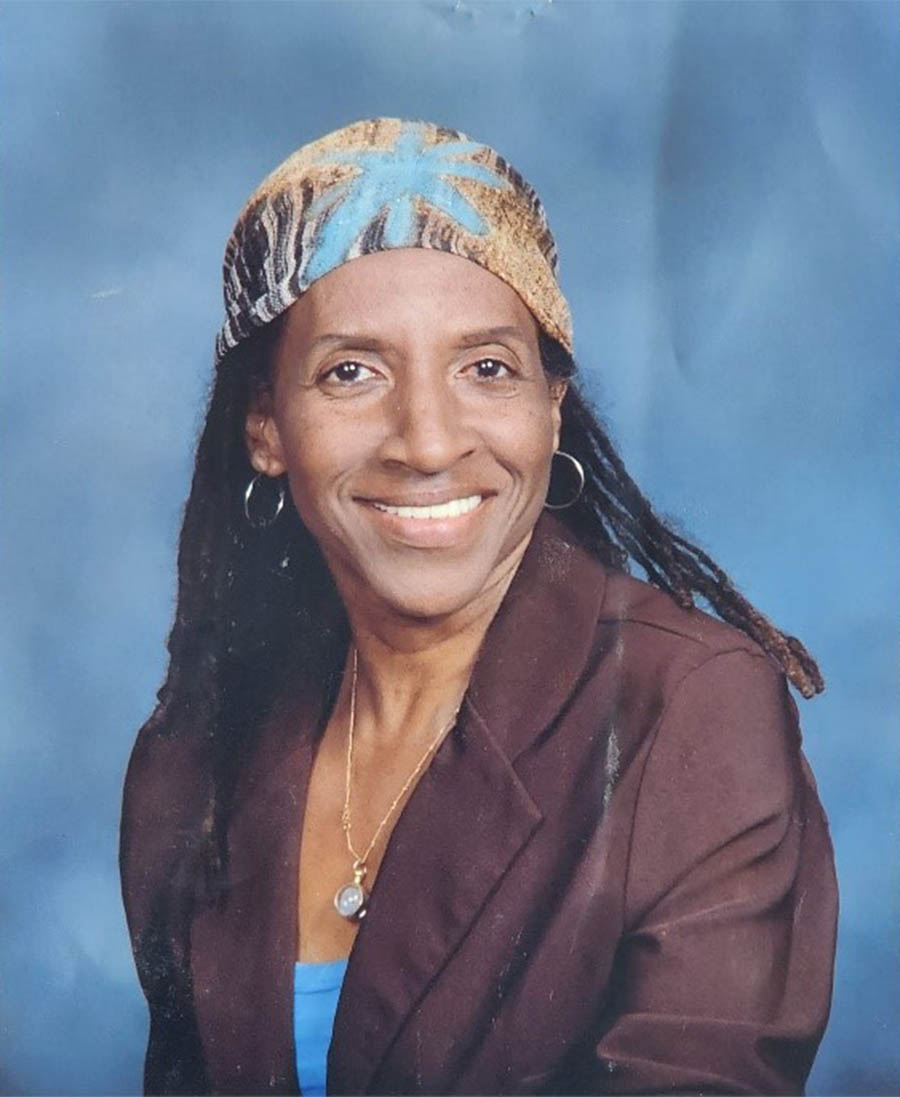By Abigail Headley
“I am writing with the hope that some children or young people will not experience the wasted years that I did as I stubbornly pursued a path of self-destruction viz atheism. During that time my gospel (which was no gospel) had been, ‘I’m not like those weak people who have created a god to prop up themselves’. Now I just marvel at the tenacity of a God who ‘broke down my walls with the strength of His love’. I want others to experience this love at an early age,” said Jean Ann Field Ridley.
Field Ridley is a former atheist turned Christian and her transition to pursuing her passion for sharing the gospel through writing, she said, taught her the strength of God’s love. She told this newspaper that she hopes to convey the message to young readers that they are God’s favourites, an idea that empowers all children of colour. Thus she has written the first book in what she said will be a series.

Field Ridley’s “Bible Stories as Told to Caribbean Children”, retells biblical stories in a way that is familiar to Caribbean people. In the first book, “Adam and Eve Make a Big, Big Mistake but God Fix’ It,” she retells the story of creation and the fall of Adam and Eve from grace. She presents the idea that people of colour were an essential part of God’s plan for redemption, and that Christianity was not forced upon them by colonisers.
Jean Ann’s upbringing in Guyana, also influenced her writing, as she was motivated to write about the eternal destiny of the soul and to combat the notion that Christianity is the ‘white man’s religion’.
“A concern for damaged countries and damaged people does indeed motivate what I do. However, let me say that nothing impacts my writing more than does my citizenship in God’s kingdom,” she said.
Field Ridley believes that a personal relationship with God is essential for children’s survival in a world that can be abusive to them. She presents the gospel in a way that is accessible and leads to personal relationships with God. Her academic background in medicine, psychology, sociology, and international relations allows her to view people and society through various lenses, impacting her choice of subject matter for writing and how she approaches it.
Given that her main audience is Caribbean children, she explained that she uses a mixture of standard English with Caribbean idiosyncrasies as well as idioms and imagery that are familiar to them. In the title of her first book, for instance, the phrase “big, big” is of common usage in Caribbean dialect, and means “very big”.
In doing this, she explained, her writing “invites the Caribbean people to see themselves as vital to the human family and not an ‘outside child’ of God. They must know that God made mangoes at the same time He made apples”.
The author also addresses the issue of residual effects of slavery and colonialism in her writing. She noted that it is the underlying motif of the series.
“Using idiom and imagery, I give the reader permission to celebrate who they are racially and culturally. It is distressing to witness the continuing existence of colorism and good hair-ism in our society. Even more unspeakable is the practice of skin bleaching. Behavioural scientists have documented the negative effect on self-acceptance produced by chronic lack of racial and cultural representation, in the books and in the media that young people consume. This series is my contribution towards erasing this lack. At the same time, it is good to note that in the last few years there has been an uptick in books that address this issue and are written for children,” she expounded.
Not only does Field Ridley weave the Caribbean dialect and address neocolonialism in the structure of her books, but she also ensures that room is made for children of all races to see themselves and to feel a familiarity with and love from the stories she pens.
“We are all empowered by love. We can climb mountains, leap over tall buildings, and achieve our potential when we know we are loved. Children everywhere must know that they are lovable. And that they are loved completely and without recall – by the one who matters most,” she explained.
When asked about the role of personal relationship with God in her books, Field Ridley noted that the Caribbean is viewed as a religious area, with most people being referred to as Christians unless they are Hindu or Muslim. Black individuals, she added, are often automatically considered to be Christians.
“Personal relationship is the whole point of my writing… Without it, my writing would simply be giving them food for the soul – supplied plentifully and beautifully by other writers for children. My focus is the spirit of man – that part that connects with God. How will they believe if they don’t hear the gospel? My aim is to present the gospel in bite-sized pieces, digestible and leading to a personal relationship with God,” she said.
“This affects my choice of subject matter for writing and, hopefully, the treatment of this,” she explained.
The next book in the series, “When God Changed His Clothes,” retells the story of the advent of Jesus to earth. Field Ridley said it will serve to remind readers that Jesus assumed an “earth suit” to conduct the business of restoring paradise to the people of the earth.
Field Ridley’s books differ from traditional retellings of bible stories. Generally, when a bible story is retold, it encompasses the lives of characters who are often portrayed as white, despite their geographical and true ethnic backgrounds.
The author explained, “White people will tell you that they grew up assuming that all biblical characters were as White as they. And Black people would agree with that assumption. Children’s picture books have indeed told a thousand words and left an almost indelible impression on minds. Additionally, over the years, paintings by famous artists have added to the Europeanization of these characters. The result, for instance, is that it is easy to reject the idea that Moses might have been married to a Black (Cushite) woman. This series invites the reader to embrace the notion that people of colour were important actors in God’s plan of redemption of humans and that coloration generally, was and is part of the ‘good’ in creation.
Field Ridley has been living in the United States for a number of years and works mainly within the education system. She currently resides in Orlando, Florida in the midst of family and friends. She told Stabroek News that she derives most pleasure from outdoor dining and chatting with good company.
“Indoors, I missed my calling as an interior decorator and enjoy arranging, and rearranging furnishings in between burning quite a few meals. I have always devoured books though I do less of that now [and] I love sharing Christ with others”.
Field Ridley aims to return to Guyana sometime in the near future, to have her books launched. Meanwhile, the first in the series is available on Amazon.









